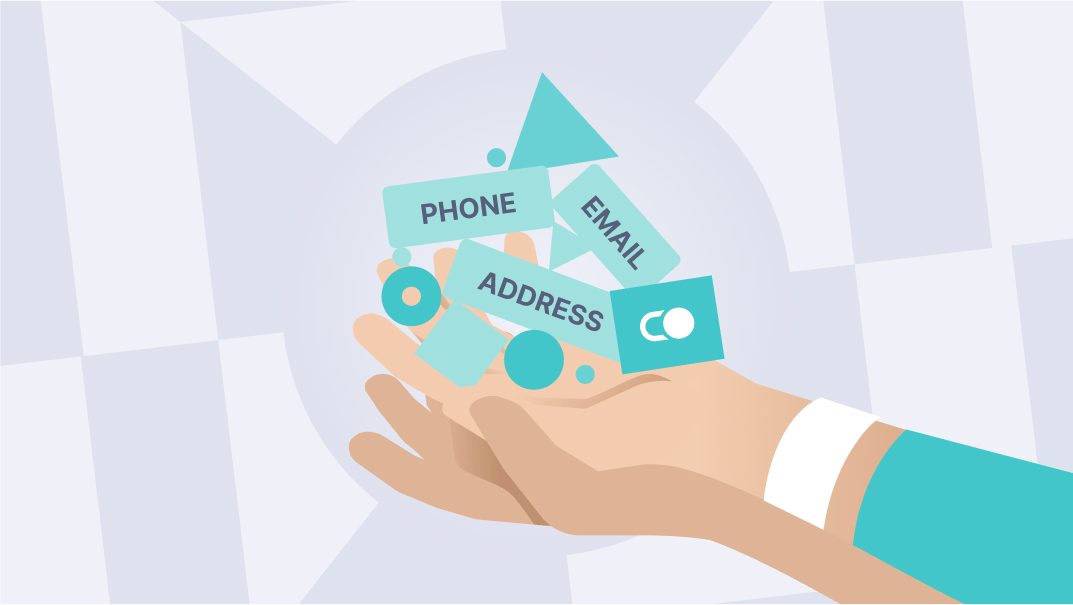
Happy Wednesday! If you’re looking for a mid-week boost, you are in the right place. Our AI updates are a surefire way to energize your day. ⚡️
Your info is on the dark web
Every day, data brokers profit from your sensitive info—phone number, DOB, SSN—selling it to the highest bidder. And who’s buying it? Best case: companies target you with ads. Worst case: scammers and identity thieves.
It's time you check out Incogni. It scrubs your personal data from the web, confronting the world’s data brokers on your behalf. And unlike other services, Incogni helps remove your sensitive information from all broker types, including those tricky People Search Sites.
Help protect yourself from identity theft, spam calls, ID theft and health insurers raising your rates. Plus, just for our readers: Get 55% off Incogni using code PRIVACY.
🤯 MYSTERY AI LINK 🤯
(The mystery link can lead to ANYTHING AI related. Tools, memes, articles, videos, and more…)
Today’s Menu
Appetizer: Researchers use AI to protect plants from harmful bugs 🪲
Entrée: A deepfake call from Joe Biden 📱
Dessert: AI’s new medical resource 🏥
🔨 AI TOOLS OF THE DAY
📝 YouTube Summarizer: Quickly understand the key points and ideas presented in YouTube videos. → check it out
🎥 OneTake AI: Turn raw footage into a fully-edited professional presentation with a single click. → check it out
🐾 Pawtrait Studio: An app that turns humans into pets and pets into humans. → check it out
RESEARCHERS USE AI TO PROTECT PLANTS FROM HARMFUL BUGS 🪲
Q: What do you call a rabbit with fleas?
A: Bugs Bunny 🥕
What’s new? University of Minnesota researchers have discovered a way to couple satellite-based remote sensing with AI to battle against the soybean aphid, a bug that proves detrimental to plant growth.
What was found? The research, funded by the Minnesota Invasive Terrestrial Plants and Pests Center, used data from the Sentinel-2 satellite system to detect and classify soybean aphid infestations in commercial fields. By comparing satellite imagery with manual assessments of aphid presence, researchers demonstrated that satellite-based remote sensing can identify soybean plant stress caused by aphids. The breakthrough lies in the application of a machine learning algorithm, specifically a support vector machine, which can acutely analyze this data and accurately determine fields with high aphid infestations requiring insecticide application.
Why is this important? This innovation streamlines pest management for farmers who traditionally rely on laborious field walks and a keen eye to assess aphid levels. The findings promise economic and environmental benefits, fostering more sustainable soybean production and paving the way for efficient pest scouting methods going forward.
A DEEPFAKE CALL FROM JOE BIDEN 📱

Politics: “Poly-” (many) “-tics” (blood sucking parasites). 😆
What happened? New Hampshire residents received a robocall purportedly from a deepfake President Joe Biden, urging them not to vote in the state’s Democratic presidential primary.
What is the concern? Most have concluded that the voice on the phone, which claimed to be Joe Biden, was an AI deepfake of his voice. Experts have continually emphasized the ease with which current AI programs can replicate voices with minimal audio samples, posing a significant threat to the integrity of public opinion. Others think AI is fair game to use as a weapon of public influence, as news networks have a similar aim in how they select and report stories. Nonetheless, as the 2024 general election approaches, we can surely expect to see AI deepfakes continually play a role on both sides of the isle.
AI’S NEW MEDICAL RESOURCE 🏥

Patient: “Doctor, doctor, will I be able to play the violin after the operation?”
Doctor: “Yes, of course.”
Patient: “Great! I never could before!” 🎻
What’s new? A collaboration of researchers from UCLA and UC Irvine has resulted in the creation of the Medical Informatics Operating Room Vitals and Events Repository (MOVER), a dataset containing information from surgeries that can be used to train and test AI models.
What’s the significance? One of the roadblocks to AI’s implementation into the medical field is the scarce amount of data available to train and test AI models. This is mostly due to a lack of access to authentic medical data amidst medical operation privacy rights. This new dataset, accumulated over seven years at UCI Medical Center (2015-2022), encompasses information from nearly 59,000 patients undergoing approximately 83,468 surgeries. Stripped of patient identifiers to comply with privacy laws, the repository covers a wide spectrum of surgeries, filling a critical gap in publicly accessible databases for AI algorithm development. Available to researchers under a data use agreement, MOVER aims to propel healthcare research and AI implementation by providing a comprehensive resource for training and testing AI models. If you are interested in more, the research team has published a paper outlining the database and its uses.
“WATCH THIS” WEDNESDAY 👀
Our FryAI team sat down with Chris Estreich, co-founder of Anycall.ai, an AI-powered phone system that can mimic human conversations. Check out the interview below! 👇
HAS AI REACHED SINGULARITY? CHECK OUT THE FRY METER BELOW

The Singularity Meter Rises 0.9%: AI Models learn to hide deception

